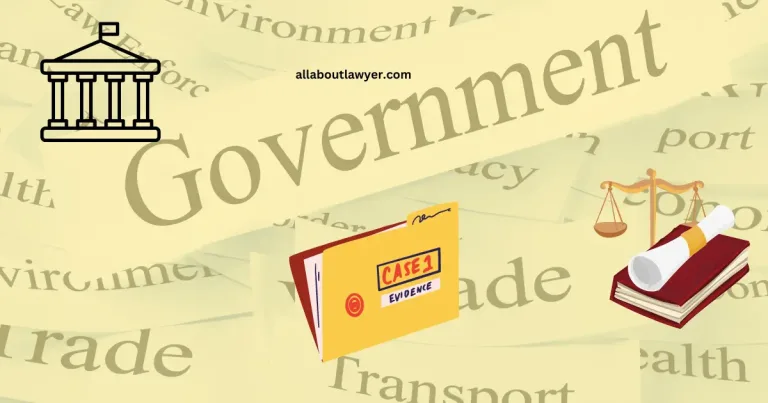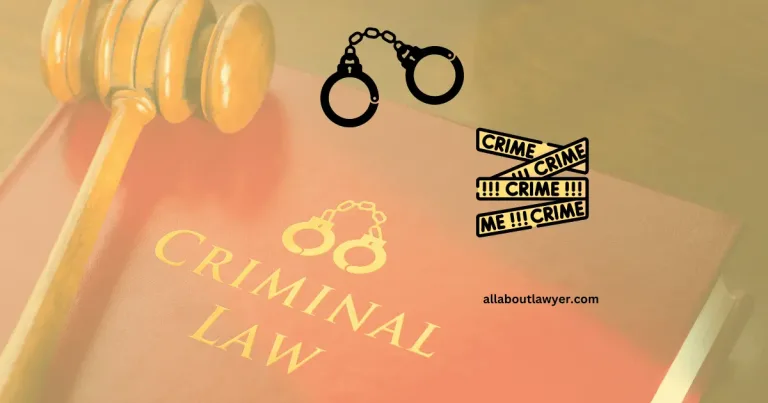Which Level of Government Writes the Majority of Criminal Laws?
Understanding the distribution of law-making power in criminal matters is crucial for anyone handling the American legal system. In the United States, the division of power between federal, state, and local governments plays a significant role in shaping the criminal justice landscape. This article explores Which Level of Government Writes the Majority of Criminal Laws, the role of each level, and the complexities that arise from this division.
Table of Contents
The Foundation of Criminal Law in the U.S. Legal System
The U.S. operates under a federal system, where power is divided between a central national government and more localized state governments. This structure, rooted in the Constitution, creates a unique dynamic in the creation and enforcement of laws, particularly in the realm of criminal justice.
The Role of State Governments in Criminal Legislation
State Governments as the Primary Lawmakers
The majority of criminal laws in the United States are enacted at the state level. This predominance is largely due to the Tenth Amendment to the U.S. Constitution, which reserves powers not explicitly granted to the federal government to the states. This principle of federalism forms the cornerstone of the American legal system.
States possess broad police power, enabling them to legislate on matters related to public health, safety, welfare, and morals. This authority allows states to define criminal offenses, set punishments, and establish procedures for criminal prosecutions. As a result, most criminal laws, such as those governing theft, assault, and murder, are state laws.
Constitutional Authority
The Tenth Amendment has historically been interpreted to include the “police power” – the authority to regulate behavior and enforce order within a state’s territory, encompassing most criminal law. This power allows state legislatures to respond to local concerns and values, shaping criminal laws that reflect the specific needs of their communities.
Flexibility and Responsiveness
State governments can quickly adapt their penal codes to address emerging criminal trends or local issues without the complexity of achieving national consensus. This flexibility ensures that criminal laws remain relevant and effective in addressing contemporary challenges.
Historical Precedent
Traditionally, criminal law has been the domain of state governments, a practice that predates the formation of the United States. This historical precedent has solidified the states’ role as the primary lawmakers in the area of criminal justice.

The Federal Government’s Role in Criminal Jurisdiction
Federal Criminal Law
While states hold primary authority, the federal government also plays a crucial role in criminal law. The U.S. Constitution grants Congress specific powers to enact criminal laws, particularly in areas that affect the nation as a whole. Federal criminal law typically focuses on:
1. Interstate and Foreign Commerce: Federal laws often address crimes that affect multiple states or have an international dimension, such as drug trafficking, fraud, and terrorism.
2. Federal Property and Installations: Crimes committed on federal lands, military bases, or in federal buildings fall under federal jurisdiction.
3. Civil Rights: Federal laws protect civil rights and prohibit discrimination, with corresponding criminal penalties.
4. National Security: Crimes related to espionage, treason, and other threats to national security are exclusively federal offenses.
The Scope of Federal Criminal Law
The federal criminal code, while less extensive than the combined criminal statutes of all 50 states, addresses serious offenses and provides a uniform approach to crimes that affect the nation as a whole. Federal laws play a pivotal role in areas like national security, interstate crime, and offenses against federal institutions.
The Intersection of Federal and State Laws
Concurrent Jurisdiction
In many cases, criminal conduct can violate both federal and state laws, leading to concurrent jurisdiction. For instance, drug trafficking is a crime under both federal and state statutes, allowing for prosecution at either level. However, constitutional protections against double jeopardy prevent multiple punishments for the same offense.
Preemption and Cooperation
Federal laws can supersede state laws in certain areas, particularly when Congress has explicitly claimed exclusive jurisdiction. Additionally, federal and state law enforcement agencies often collaborate on cases that span jurisdictions or involve both federal and state offenses. This cooperation is essential in addressing complex criminal activities that cross state lines or require a coordinated national response.
The Role of Local Governments in Criminal Legislation
Local Ordinances and Enforcement
Local governments typically do not have the authority to create comprehensive criminal codes. However, they can enact ordinances related to specific offenses, often addressing matters such as traffic violations, public intoxication, and minor disorderly conduct. These local laws must comply with state and federal statutes.
Enforcement Priorities
Local authorities often have discretion in how they enforce state and federal laws, effectively shaping the practical application of criminal statutes in their jurisdictions. This discretion allows local governments to prioritize certain types of offenses based on community needs and resources.
Specialized Courts
Some municipalities establish specialized courts to handle specific types of offenses, such as drug courts or mental health courts. These courts influence how certain crimes are addressed at the local level, often focusing on rehabilitation rather than punishment.
Related Articles For You:
Facing Criminal Impersonation Charges in Denver?
What impact did the criminal laws in hammurabi’s code have

Challenges and Complexities in Criminal Law Creation
Balancing Public Safety and Individual Rights
Lawmakers must strike a delicate balance between protecting society and preserving individual liberties. The challenge lies in crafting laws that effectively deter criminal behavior while respecting constitutional rights.
Evolving Social Norms
Criminal laws must adapt to changing social attitudes and emerging issues, such as cybercrime or new forms of substance abuse. This evolution requires lawmakers to stay informed and responsive to societal shifts.
Overcriminalization
There is ongoing debate about the proliferation of criminal statutes and the potential for overreach in defining criminal behavior. Overcriminalization can lead to a bloated legal system and challenges in enforcement.
Consistency and Fairness
Ensuring that criminal laws are applied consistently and fairly across different jurisdictions and demographics is an ongoing challenge. Disparities in enforcement can undermine public trust in the legal system.
Resource Allocation
The creation of new criminal laws must consider the resources required for enforcement and prosecution. Effective criminal justice relies on adequately funded law enforcement agencies, courts, and correctional facilities.
The Impact of Judicial Interpretation
Statutory Interpretation
Courts interpret the language and intent of criminal statutes, sometimes clarifying or limiting their scope. Judicial interpretation ensures that laws are applied consistently with legislative intent and constitutional principles.
Constitutional Review
The judiciary can strike down criminal laws that violate constitutional protections. This review process acts as a safeguard against unconstitutional legislation.
Common Law Development
In some jurisdictions, courts contribute to the body of criminal law through case law and precedent. This common law development allows the legal system to evolve organically in response to new challenges.
Conclusion
In Short the answer of your question Which Level of Government Writes the Majority of Criminal Laws? Is that both federal and local governments play a role in criminal law, the majority of criminal laws are enacted at the state level. The principle of federalism, enshrined in the U.S. Constitution, empowers states to protect the health, safety, and welfare of their citizens through criminal legislation. Understanding this fundamental division of power is essential to comprehending the intricacies of the American criminal justice system.
Related Articles For You:
Aggravated Sexual Assault of a Child Under Six in Houston
FAQs
Q: Can federal and state laws conflict in criminal matters?
A: Yes, federal and state laws can sometimes conflict. In such cases, the Supremacy Clause of the U.S. Constitution generally gives precedence to federal law, but the specific resolution may depend on the details of the conflict and the area of law involved.
Q: Can a state law be stricter than a federal law?
A: Yes, states can enact laws that are stricter than federal laws, as long as they do not conflict with federal statutes. This allows states to address specific local concerns and standards.
Q: What happens if a state law conflicts with a federal law?
A: If a state law conflicts with a federal law, the federal law typically prevails due to the Supremacy Clause of the U.S. Constitution. However, the resolution may depend on the specific circumstances of the conflict.
Q: Can a city make its own criminal laws?
A: Cities and counties can create local ordinances that regulate behavior and impose penalties for violations. However, these local laws are typically limited to minor offenses and must not conflict with state or federal laws.
Q: How do tribal governments fit into the criminal justice system?
A: Tribal governments have their own justice systems and can enact laws governing their members on tribal lands. However, federal law applies in certain cases, particularly for serious crimes under the Major Crimes Act.
Q: What are some examples of federal crimes?
A: Examples of federal crimes include drug trafficking, counterfeiting, terrorism, immigration offenses, and crimes committed on federal property.
About the Author

Sarah Klein, JD, is a former criminal defense attorney with hands-on experience in cases involving DUIs, petty theft, assault, and false accusations. Through All About Lawyer, she now helps readers understand their legal rights, the criminal justice process, and how to protect themselves when facing charges.
Read more about Sarah
